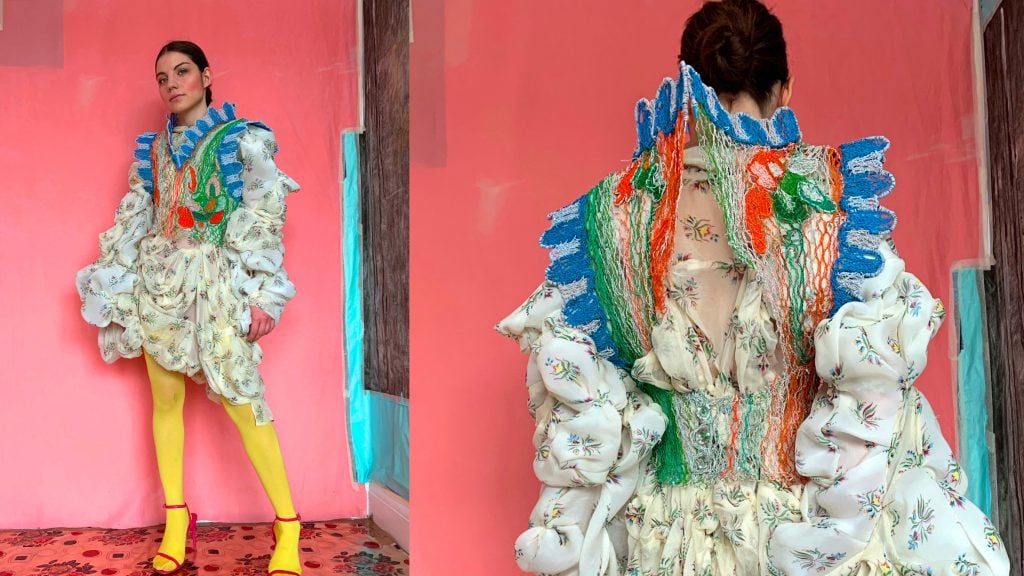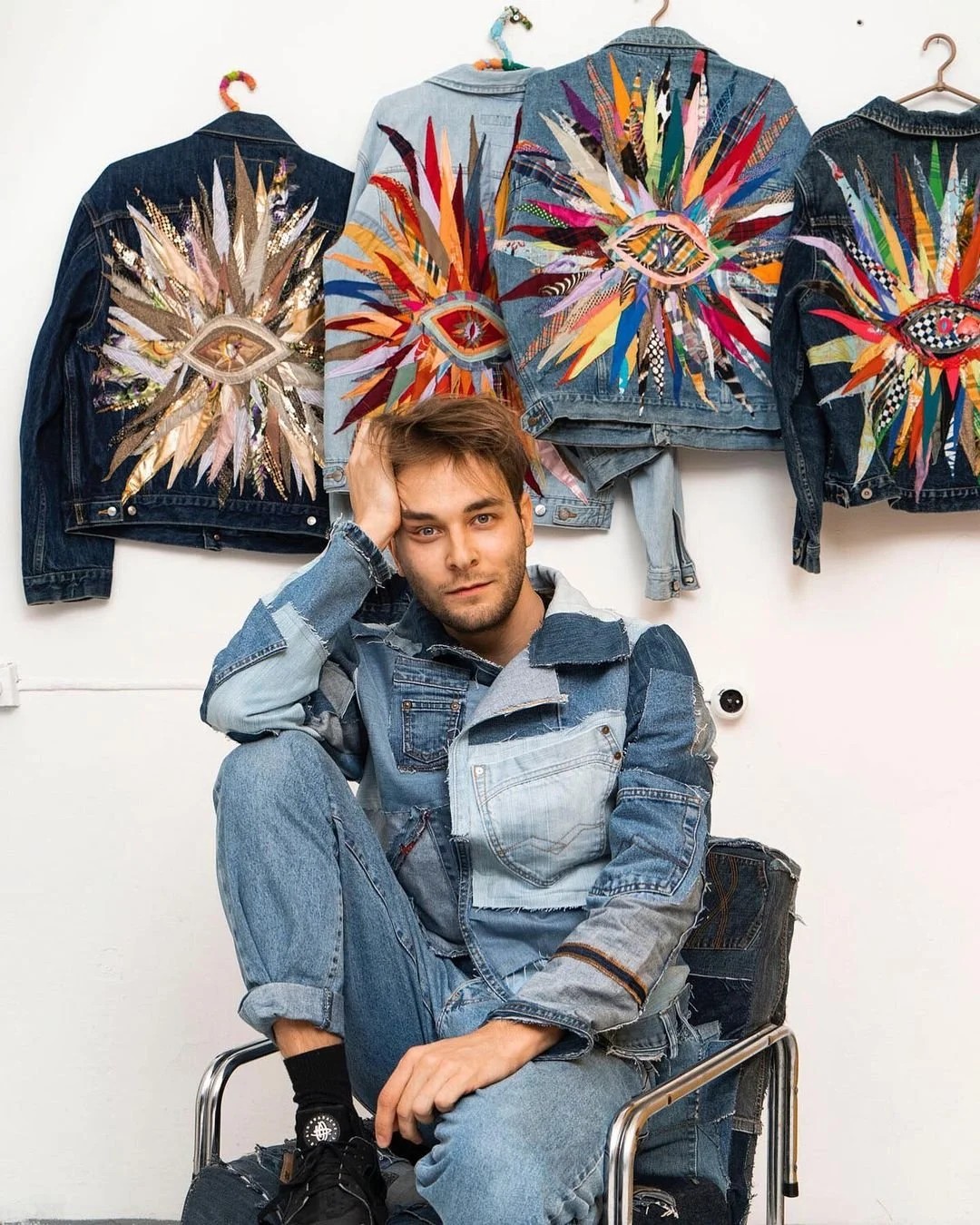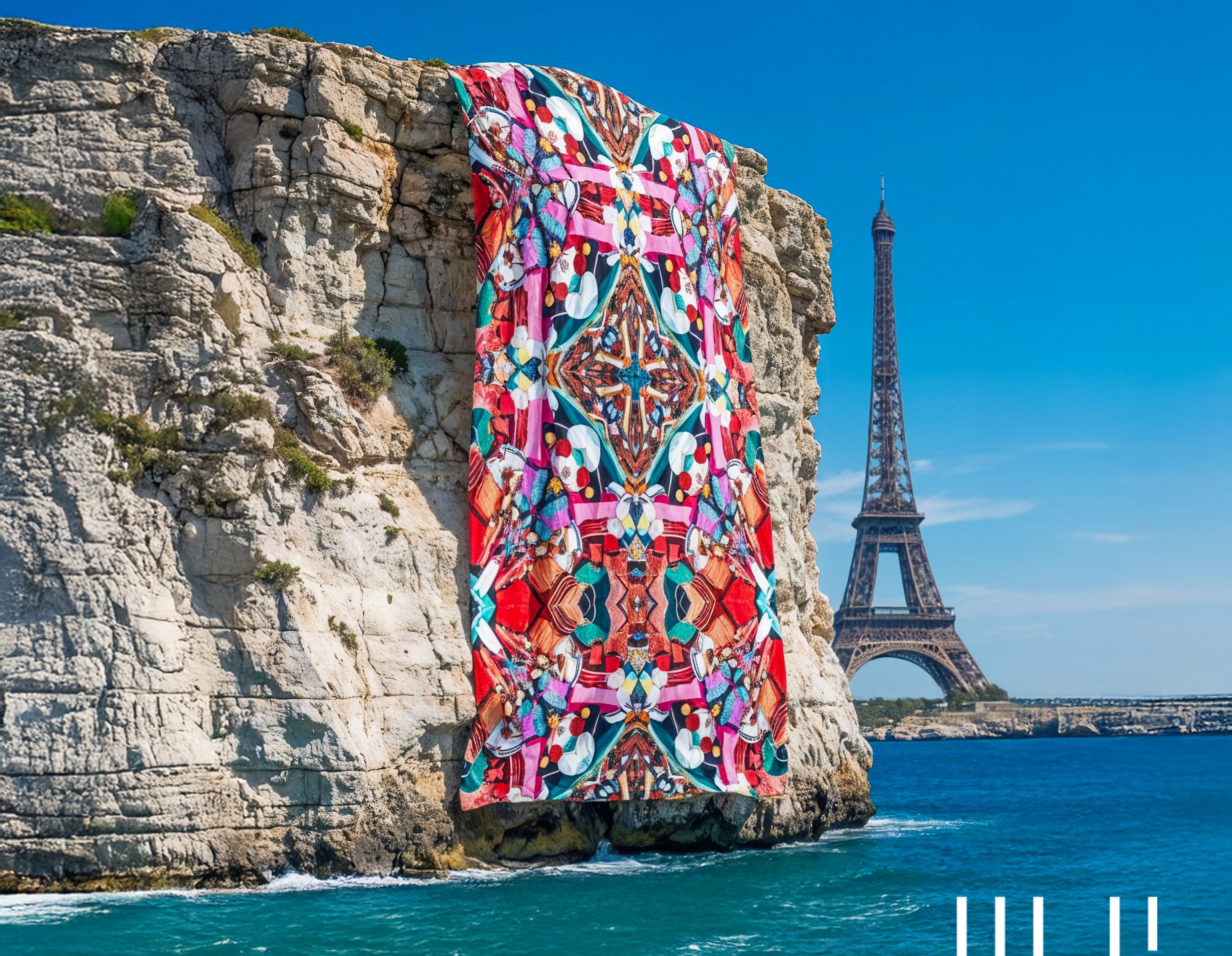Sustainable fashion, upcycling and EU policies join forces this week at an exhibition in Paris, featuring the work of Cyprus textile designer Michalis Pantelides, who said “fashion should be slow, soulful and deeply rooted in meaning.”
This is what he will bring to the 28 European Visions for a More Sustainable Fashion, which brings together one designer from each EU country plus a Ukrainian guest artist. The designs presented will be exclusively made from upcycling or designed using ethical and sustainable practices.
Known for his fusion of photography, cultural heritage and delicate textile creations, Pantelides was selected by Parliament to represent Cyprus at the exhibition, running from October 1 to October 31. It has been organised to highlight the EU’s Textile Waste Directive, which aims to reduce waste, and promote circularity in the textile and footwear sectors.
Pantelides will unveil a striking piece inspired by his passion for environmental action. ‘Red Caftan’ is a dress made from 100 per cent recycled plastic bottles, transforming environmental concerns into a wearable statement.
“This exhibition highlights not only the importance of design innovation but also the role of culture and heritage in shaping responsible creativity,” he said. His exhibit is not just a beautiful dress; it’s redefinition of how sustainability can merge with luxury and cultural storytelling.

“There’s a certain beauty in things others throw away,” he added. With the belief that potential can be found anywhere, the idea to photograph recycled bottles sprang to his mind. Red Caftan came to life through working with discarded rubbish.
The exhibition takes place as a parallel event of Paris Fashion Week, and is free to access. The artists taking part use diverse styles and techniques to create.
The Waste Directive, which has inspired the spectacle, illustrates how EU law helps to guide development through environmental protection, while making Europeans aware of EU policies and the impact these have on their lives.

Another noteworthy participant is Jackob Buczynski, representing Poland. He is known for works made from upcycled and second-hand materials, mostly denim and vintage fabrics, used to create artisanal patchworks. Romania’s Alexandra Sipa explores the potential of lace through the lens of Eastern European nostalgia. Her garments echo her views on sustainability through the ruffled edges of lace, dedicated to how her grandmother cares about her household objects, constantly reimagining them through upcycling.






Click here to change your cookie preferences